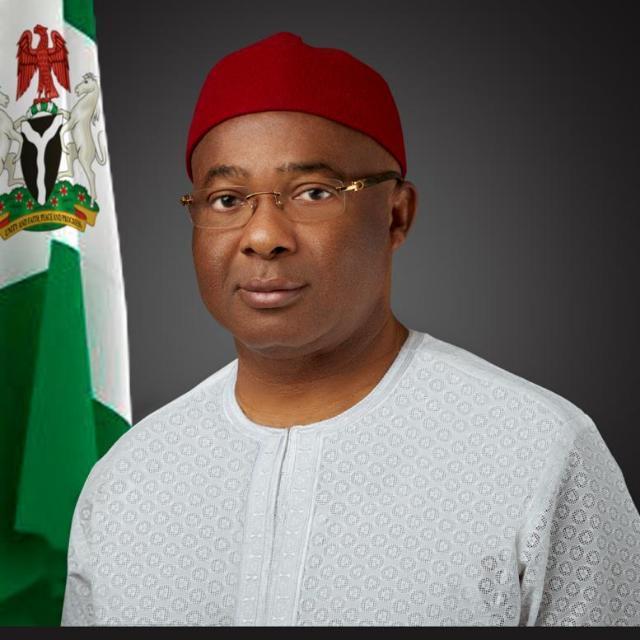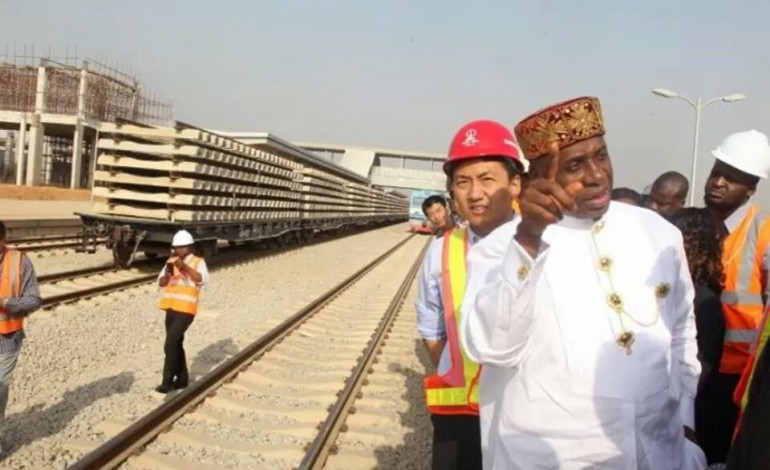Within the first week of October 2016, the Director General of the Nigerian Maritime Administration and Safety Agency (NIMASA), Dr. Dakuku Peterside, in a statement made available to media houses, including Business Hilights, pledged that his management will achieve not less than a minimum of 90 per cent Nigerian vessels being involved in the country’s Cabotage trade in 2017.
This is September and exactly one year on, there is nothing on ground to show any percentage of achievement as pledged by the leadership of the federal agency, rather what can be said to be the first step; introduction of compliance strategies was only released by NIMASA in August this year, 11 months after.
Business Hilights recalls that the failed pledge on Cabotage was made by Dr. Peterside, in Port Harcourt during his maiden interaction with the staff of Port Harcourt Port office of NIMASA when the agency’s top management team was touring offices and facilities in zones across the nation.
In the Port Harcourt meeting, the DG had assured staff of the zone of early resolution of their pleas said the management was working on leasing sea-going platforms from owners for the purpose of ensuring that enforcement of Cabotage rules and other regulations in the country’s coast are effectively carried out by the zonal formations.
According to him, “Cabotage Act can become useful through enforcement. By next year we want minimum of 90 per cent Nigerian vessels involved in our Cabotage trade. In the next few weeks, we will provide sea-going platforms for enforcement. By October, we will have platforms for enforcement in all zones. We will lease fast moving vessels from owners and use them ourselves.
“This is not same as the contract past NIMASA management had with Global West Vessels Specialist Limited. On this issue let me stress again that I have been misinterpreted and misquoted by the media. We are not replicating the Global West model.
“In the next few months, you (the zones) will be semi-autonomous. You will be able to raise debit notes. You will initiate and finalise transactions here (at their various zonal head offices). Zones will control their resources and there will be measures for measurement of performance.”
But 12 months after, investigations by Business Hilights showed that stakeholders’ in the sector are more confused on the direction being followed by the administration as far as Cabotage regime is concerned.
Barring his mind on the matter, Managing Director of Oceangate Engineering and Geophysics Limited, Taiwo Magbojuri disclosed that the nation’s participation in Cabotage regime regarding vessels, cargo, ship liners has continued to be abysmal irrespective of the reform claims of Nigerian Maritime Safety and Administration (NIMASA) in recent times.
He indicted the leadership of the federal agency, saying Nigerian youths could not be looking for jobs when opportunities abound in the maritime industry; which was mopped up by foreign professionals at the detriment of the country’s teeming youths.
His submission is stemmed from the fact that Nigeria’s compliance with the Cabotage law which stipulates certain percentage of indigenous involvement in the control of waterways and vessel as a means of job opportunities for youths has been abysmal.
Cabotage law seeks to protect merchant ships in most countries that have a coastline to protect the domestic shipping industry from foreign competition, preserve indigenous-owned ships and infrastructure for national security.
The Nigerian Coastal and Inland Shipping (Cabotage) Act No 5 of 2003 Section IV Sub-section I article a-e states that;
“The vessel is wholly and beneficially owned by Nigerian citizens or by a company wholly and beneficially owned by Nigerian citizens and a vessel or company is wholly and beneficially owned by a Nigerian.
“Where all the shares in the vessels and the company are held by Nigerians free from any trust or obligation in favour of any person not a citizen of Nigeria.
“The vessel is on bareboat charter to Nigerian citizens and is under the full control and management of Nigerian citizens or a company wholly and beneficially owned by Nigerians in terms of subsection (1) (a).
“The vessel is owned by a company registered in Nigeria and the percentage of shares in the company owned by Nigerian citizens is not less than 60 per cent;
“The vessel is exclusively manned by officers and crew of Nigerian citizenship except where Section 10 applies; and role of the body – Association of Marine Engineers and Surveyors (AMES) to the sector as indispensible.
“It should call on professionals to bring to the fore their expertise in helping the agency actualise its core mandate of regulating the industry.
Magbojuri said “Many international ships coming to Nigeria does not have Nigerian personnel on board as they prefer using their nationals which is against the Cabotage law,’’, arguing that “There must be a concerted effort to bridge this gap in the maritime sector as this can really drive the economy and provide employment to our youths,”.
“There are many areas in which the youth can work in the ships which should not be attributed to the foreigners at all. It is time to stand up for what is ours.
Making a direct reference to NIMASA, the maritime expert said “The laws are there but we need to fulfil what the law says, most especially the Cabotage law in order to reduce unemployment in Nigeria”.
Also speaking barely three days after NIMASA unveiled the new compliance strategy for implementation of the 14-year old moribund Cabotage Law, maritime lawyer and Principal Partner of Akabogu & Associates, Mr. Emeka Akabogu picked holes in the activities of the agency.
He said “the failure of the Cabotage implementation up till now has been because of NIMASA, and not really because of the law”.
“NIMASA over the years has had no will to simply implement the latter of the law. What they have come up with simply is that they will no longer grant waivers relating to certain categories of officers.
Continuing, Akabogu averred that “Now for those categories of officers, yes it makes sense that there is no point having foreigners for second officers but I really don’t see any significant impact that would have; given that ordinarily most of the time, those categories of officers are indigenous”.
“For the companies which are coming into the country say temporarily and working for a very short period of time, how that will apply we need to see. I think that the more significant area of focus should be relating to granting of waivers to ships itself.
According to him, “If NIMASA is serious, the new compliance strategy should not have been limited to a number of officers; it should have covered none granting of waivers to certain types of ships particularly tanker vessels involve in operating along the coast”.
“If they had insisted and said they would no longer grant any waivers for now to such tanker vessels that would have had an impact. But as far as they keep granting waivers to tanker vessels, all these other ones, their impact will just be minimal and more of noise as opposed to real impact.
Akabogu further argued that the real impact is by limiting the granting of waivers to tanker ships, stressing that “If NIMASA is serious, that is what it should do on the matter”.









